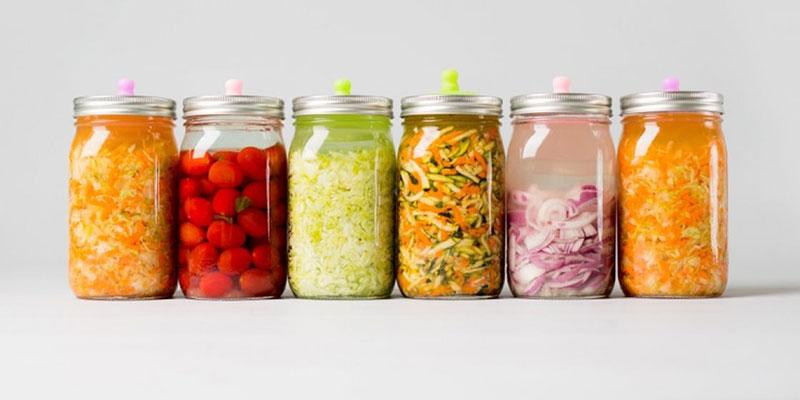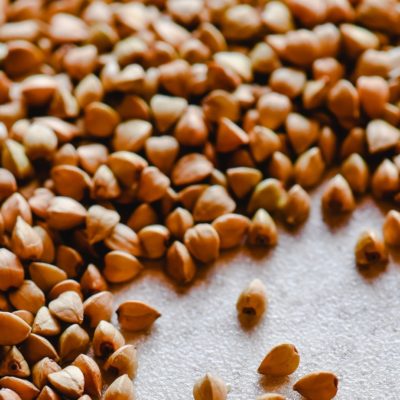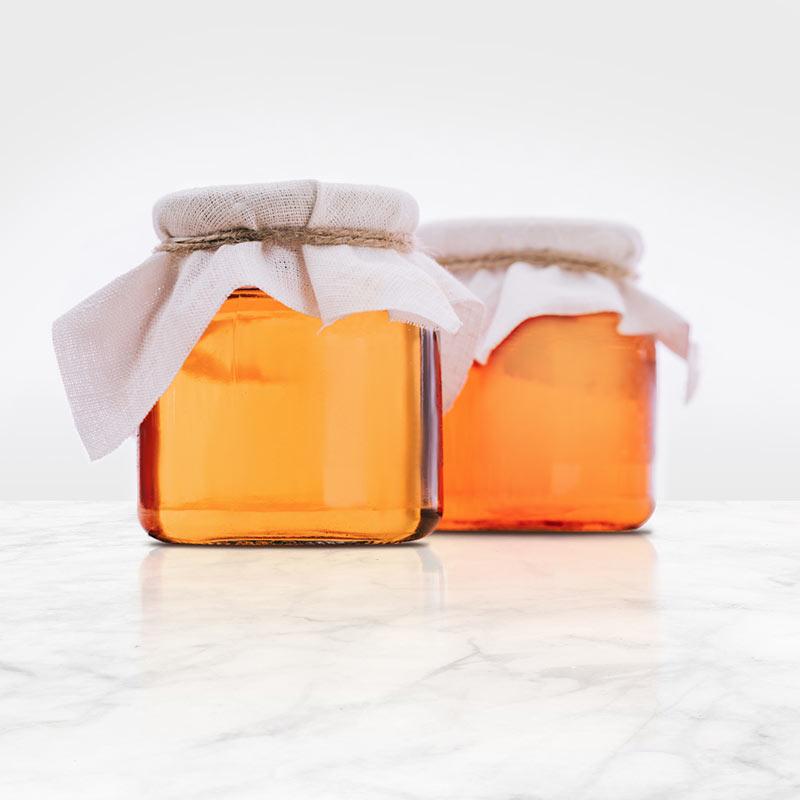How to keep your gut happy in 2019!
We interviewed Natural Health Specialist Greg Williams to give us the lowdown on all things gut related!

1. There’s been a buzz in the mainstream media around the words ‘gut health’ – but lets imagine we’re complete novices on the subject – how would you describe what this means to someone?
Public awareness of the importance of gut health certainly has increased in recent years, and with good reason. The health of the human gut (the intestinal tract, consisting of the small and large intestines) has an effect on the overall health of the body. It impacts not just digestive health but also our immune system, our mood, mental health, sleep, skin condition, detoxification, energy, hormone regulation and much more.
In simplistic terms, anything we eat or drink should be broken down (digested), and the nutrients / vitamins / minerals from that should be extracted and absorbed into the body, helping it to function and perform at its best. Our gut should also help to protect us against any pathogens (bad bugs, for example) that can harm our health.
With poor gut health, these processes will be impacted, thus having a knock-on effect to the rest of the body. There are many factors that can make up the term “gut health” including some terms you may be familiar with such as intestinal permeability (also known as “leaky gut”), digestive enzymes, stomach acid, yeast / candida, and, of course, our gut bacteria (to name just a few).
2. What are your top 3 tips for keeping a healthy gut?
Just 3?!? That’s tough as so many factors have an impact on gut health, and it can differ from person to person. For example, diet can be a major driver of poor gut health in one person, whereas stress could be a bigger major factor in someone else. That said, if you’re going to push me, I’d say…
Eat Unprocessed Foods
In terms of food intake, and deciding what you should be eating, your focus should be on eating primarily unprocessed foods.
‘Processed Food’ refers to food that has undergone at least one form of processing to turn the basic raw ingredients into the product that you consume. They will often contain bad ingredients which can do your body real harm. In particular, they will often contain high levels of sugar and Trans fats and other potentially inflammatory ingredients.
Additionally, the processing of foods will often destroy a large amount of the vitamin and mineral content in the food, making it much less nutritious, as well as the enzymes, making it much harder for your body to digest appropriately.
Avoiding processed foods means a focus on eating fresh, natural products without a long list of ingredients that you can’t even read!
So the majority of your diet should come from single ingredient foods, mainly meat, fish and vegetables.
Keep Stress in Check
These days it seems that pretty much everyone is stressed to some extent.
We’re now much more stressed than people 50-100 years ago, who in reality were living through much harder times in general. Nowadays we worry about a meeting, a deadline, how we look, how we are perceived on Facebook and tonnes more minor things.
Without a doubt, you 100% MUST manage stress if you want optimal gut health. A huge percentage of people we work with certainly noticed the onset of their gut problems during a stressful event.
Stress can increase inflammation, affect how well we digest foods, damage the lining of our gut, and have an adverse effect on the levels of good and bad bacteria within our gut (which then impacts our health even further).
There are lots of ways to manage stress, and doing so will be individualised to each person, but taking steps to do so is certainly important.
Eat for your Bacteria
I’m sure we’ll touch on this some more but the health of the bacteria in our gut is critically important. The foods we eat, and the lifestyle we lead, will have an impact on the bacteria within our gut.
One important factor in ensuring healthy gut bacteria levels is to ensure that we eat a good balance of both soluble and insoluble fibre. Fibre helps to feed our good bacteria levels. Soluble fibre is abundant in fruits and vegetables, lentils, chickpeas, potatoes with their skin still on, wholegrain breakfast cereals and oats, while insoluble fibre is a form of fibre that cannot be digested or absorbed by the body and acts like a broom sweeping through the gut and removing potentially toxic substances from the gut lining as it passes through. This type of fibre can be found in vegetables, psyllium husks, oat bran, wheat germ, nuts, seeds, and beans and popcorn (air popped).
And then, of course, fermented foods can also help to provide our guts with more beneficial bacteria…
3. Fermented foods such as Kombucha are great for gut health, could you explain to us why consuming these on a regular basis help our whole immune system?
Our gut is home to billions and billions of bacteria, which have a huge impact on our health. They affect our mood, inflammation, immune system, skin, gut health, and much more, as well as helping to support our digestion and our ability to assimilate the nutrients from the food we eat.
Some of these bacteria are ‘good’ and some are potentially harmful. If the balance between good and potentially harmful bacteria in the gut isn’t appropriate, then numerous symptoms can result.
Fermented foods are the foods that provide the body with potentially beneficial bacteria. These foods include things such as kefir, sauerkraut, kimchi, and. Of course, Kombucha.
What we know about consuming foods like this has changed in recent years. Previously it was thought that by consuming fermented foods, and taking things such as probiotics, we could consume them, and out guts would re-colonise with these beneficial bacteria. However, that doesn’t appear to be the case and in fact it seems that they don’t colonise at all but do still have transient benefits (i.e provide benefit whilst being consumed and for a certain time period afterwards – generally a matter of weeks). These benefits will be for our digestion, immune system, inflammation levels. Therefore, ongoing use / consumption is generally recommended.

4. There have been several studies to confirm that it is not just what we eat that affects our immune system, but several other factors such as environmental, chemicals and stress levels. What can you tell us about how these impact our gut health?
This is certainly true. There are many factors away from diet that will play a part in our immune system and the health of our gut bacteria. For example, the early years of our life can be particularly important, especially whether we were breast fed or not, or born by natural birth or C-section.
Even the environment in which we grew up can play a part. For example, its been shown that people who grow up on a farm, as opposed to an urban area, have a much lower chance of serious digestive issues such as inflammatory bowl disease. This is because exposure to dirt and animals, can help to better develop our immune system and the health of our gut bacteria.
Exposure to chemicals and toxins within the environment can also have the ability to alter bacterial processes within the gut. Mould toxins, for example, are everywhere and exposure to them can affect the gut bacteria tremendously in some people.
Even the containers we use for lunches, takeaways, water bottles, plastic cups, the inner lining of canned food containers – to name just a few – very often contain BPA (bisphenol-A) which is a chemical added to a number these commercial products during the manufacturing process. The worry is that this chemical leaches into the contents and we are ingesting it regularly. There is evidence that it can upset the balance of hormones withi8n our bodies, which of course can have a disastrous effect on overall health.
Stress is another major factor in gut health. In one study, it was found that exposure to stress changed the diversity, composition and number of gut microorganisms, especially leading to a decrease in good bacteria. Have you ever felt run down or noticed that you are more susceptible to colds and flu when you are undergoing periods of stress? This is why!
There are many other factors on top of the above to consider, including use of medication, antibiotics, the contraceptive pill, and whether we have underlying infections.
So yes, certainly many areas to consider.
5. Constipation and bowel issues are common in todays society. How many times a day would you recommend is the optimal number for bowel elimination and why?
Everyone is different and what may be optimal for one person, may not be ideal for another. However, in general, personally I like to see people going 1 – 3 times per day. And for that bowel movement to be easy (non-painful) to pass, non-urgent, and well formed.
More regularity than this and it normally seems something is wrong (not to mention that going to the toilet too frequently can be hugely inconvenient and can lead to rapid weight loss as well as nutrient deficiencies).
Less regularly than this (for example if you are going once every few days) would normally indicate some level of constipation which isn’t good either. Our bowel movements are one way in which we eliminate toxins from our body and if we aren’t doing this frequently enough, further issues can result. However, I will just reiterate, that its not just regularity that is important but how urgent, and how well formed bowel movements are in particular.
6. Do you recommend any books for people to find the 101 on all things gut related?
Am I allowed to recommend my own one?! It’s called “Fatigue Free with Crohn’s or Colitis” and is available on Amazon. It gives a simple step by step guide to the things to be working on and addressing for better health and is a reasonably quick easy read that you don’t need a PHD to understand! Whilst it is primarily written for people with Crohns or Ulcerative Colitis, the steps laid out will be suitable for pretty much anyone with any kind of digestive health problems.
In addition to those, a few others I like are books from Dr Ruscio (called “healthy gut, healthy you) and Amy Myers (titled “The Autoimmune Solution”).
7. What would you suggest a person remove from or add to their diet if they wanted to improve gut health?
Over and above heavily processed foods (which I’ve already spoken about), in terms of foods that can commonly be an issue for many people, I would say that gluten is the primary culprit that we see with the clients we work with. Even if someone doesn’t have celiac disease, then it is still possible to have a sensitivity to gluten and removing it from the diet can be extremely beneficial for some (not all) people.
Dairy and soy can too, often be problematic.
Whilst I certainly don’t expect someone to eat “perfectly” all the time (I certainly don’t myself), in general, the bulk of someone’s diet should consist of good quality unprocessed foods including meat, fish, eggs, a wide range of fruit and vegetables, good fats such as coconut, extra virgin olive oil, nuts, avocado, and good carbohydrate sources such as sweet potato and basmati rice.
There are of course other steps that can be taken, and personalisation to each individual can be important, but the above is certainly a big step in the right direction.
Bio
Greg Williams is a leading natural health specialist based in the UK.
As a nutritionist and certified functional diagnostic nutrition practitioner with training in functional medicine, Greg has helped his wife overcome the symptoms of her Ulcerative Colitis (a form of Inflammatory Bowel Disease) after she had suffered for many years. He now specialises in helping those with serious digestive health issues – particularly Crohns and Colitis – to feel much better.
Greg and his team work with people all over the world providing them with the advice, support and guidance needed to be able to live life on their own terms, dramatically increase their energy levels, and feel amazing again.
Greg also runs Autoimmune Institute, who offer a range of ultra-high-quality supplements to people with a range of chronic health problems.
To find out more about his work then visit www.IamGregWilliams.com and www.Autoimmuneinsititute.com










